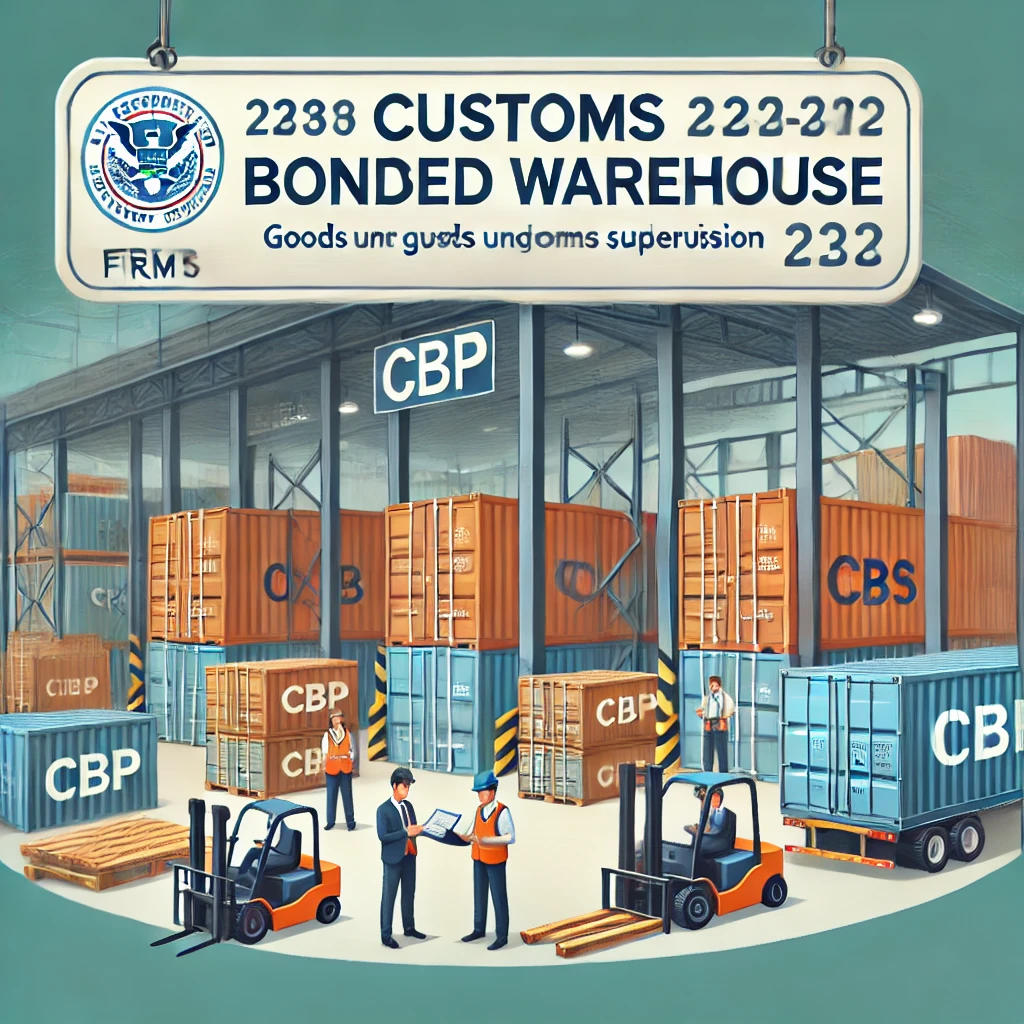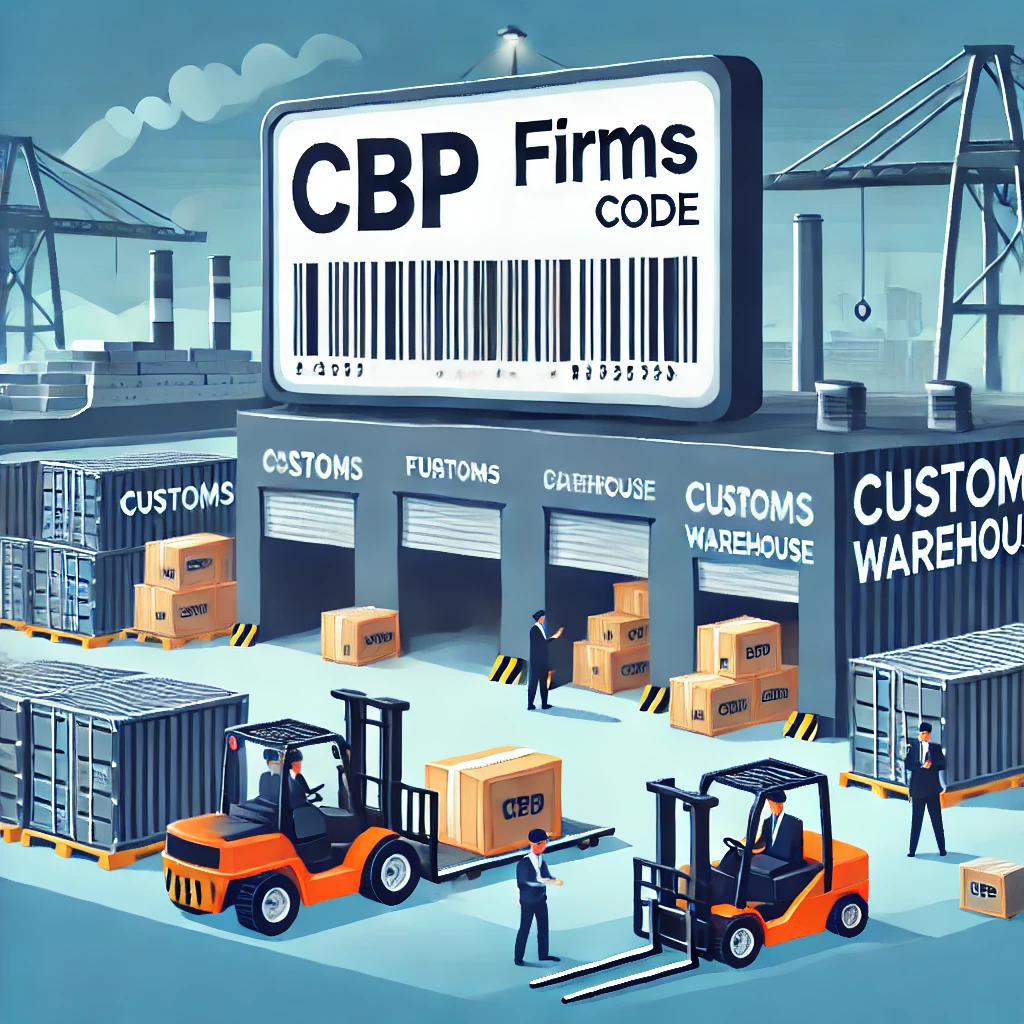CBP FIRMS Codes Explained: Everything You Need to Know

What is a CBP FIRMS Code?
A CBP FIRMS code is a unique identifier issued by U.S. Customs and Border Protection (CBP) for facilities involved in the import process. FIRMS stands for Facilities Information and Resources Management System. These codes are crucial for tracking and managing goods that are under CBP supervision.
The Importance of Codes
CBP FIRMS codes serve several critical functions:
- Facility Identification: They provide a standardized way to identify specific locations in the import process.
- Customs Compliance: FIRMS codes help ensure compliance with CBP regulations.
- Efficient Processing: They streamline customs procedures and reduce processing times.
- Inventory Control: FIRMS codes assist in tracking goods in bonded warehouses and other facilities.
How to Obtain a Code
To get a code, follow these steps:
- Determine if your facility qualifies for a FIRMS code.
- Complete CBP Form 5106.
- Submit the completed form to your local office.
- Wait for CBP to review and approve your application.
Types of Facilities That Need Codes
Several types of facilities typically require codes:
- Bonded warehouses
- Container freight stations
- Foreign trade zones
- Express consignment facilities
- Customs exam sites

Understanding the CBP FIRMS Code List
CBP maintains a list of all active FIRMS codes. This list includes:
- The FIRMS code
- Facility name
- Address
- Type of facility
You can request access to the CBP FIRMS code list through the official CBP website.
Using CBP FIRMS Codes in Documentation
When filing customs documentation, you’ll need to include the appropriate CBP FIRMS code. Common documents where FIRMS codes are required include:
- Entry Summary (CBP Form 7501)
- In-bond documentation
- Warehouse withdrawal forms
Maintaining Compliance with CBP FIRMS Codes
To ensure ongoing compliance:
- Keep your FIRMS code information updated with CBP.
- Train your staff on proper FIRMS code usage.
- Regularly audit your customs documentation for correct FIRMS code application.
The Role of FIRMS Codes in U.S. Customs Operations
FIRMS codes play a crucial role in U.S. customs operations:
- Risk Assessment: uses FIRMS codes to assess potential risks associated with specific facilities.
- Resource Allocation: They help allocate resources effectively for inspections and enforcement.
- Data Analysis: codes enable to analyze trends and patterns in import activities.

Conclusion
Understanding CBP FIRMS codes is crucial for anyone involved in international trade with the United States. By properly using these codes, importers and exporters can ensure compliance with CBP regulations, streamline their customs processes, and contribute to the security and efficiency of international trade.
For the most up-to-date information on CBP FIRMS codes and related topics, always refer to the official U.S. Customs and Border Protection website or consult with a licensed customs broker.
How Linbis Enhances Freight Forwarder Operations with CBP FIRMS Codes
Linbis, a cutting-edge logistics software provider, offers robust solutions to help freight forwarders manage codes and optimize their shipment processes:
- Automated FIRMS Code Management: Linbis’s platform automatically manages and applies the correct codes to all relevant documentation, minimizing human error and ensuring compliance.
- Integrated Customs Documentation: Our software seamlessly integrates codes into all necessary customs forms, streamlining the documentation process.
- Real-time Facility Tracking: Linbis provides real-time updates on shipment locations, including entries and exits from FIRMS code-registered facilities.
- Compliance Assurance: Built-in compliance checks ensure that CBP FIRMS codes are used correctly across all shipments and documentation.
- Data Analytics and Reporting: Our system offers comprehensive analytics on code usage, helping freight forwarders identify patterns and optimize their operations.
- CBP Systems Integration: Linbis’s platform integrates directly with CBP systems, facilitating smooth data exchange and communication.
- FIRMS Code Database Access: Our software provides easy access to up-to-date code lists, ensuring freight forwarders always have the most current information.
- Training and Support: Linbis offers extensive training on code usage and provides ongoing support to help freight forwarders navigate customs regulations confidently.
- Automated Updates: As CBP regulations and FIRMS codes change, Linbis’s system automatically updates to ensure ongoing compliance.
- Multi-modal Shipment Support: Our platform supports FIRMS code management across various transportation modes, including air, sea, and land shipments.
By utilizing Linbis’s advanced logistics software, freight forwarders can significantly enhance their efficiency in managing CBP FIRMS codes and overall shipment processes. This leads to improved compliance, reduced errors, and streamlined operations in the complex landscape of international trade and customs regulations.
